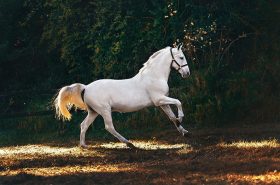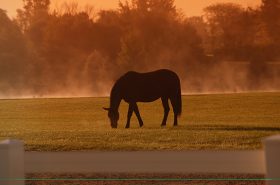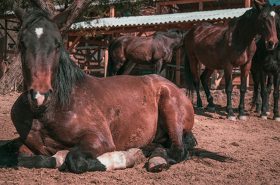Consider this advice when deciding whether to blanket your horse!
With colder temperatures quickly approaching, horse owners are scrambling to pull blankets out of storage or purchase new ones. The idea of their horse shivering in a field is too much to bear. Let’s step back for a minute and consider the reality of the situation… do horses even need blankets?
Horses have lived without blankets and sheets for thousands of years. And they have survived just fine! However with their domestication, things have changed. Many owners ride year-round and some even compete. Horses are clipped and kept stabled for longer periods of time. Ultimately, no two situations are the same. When determining whether to blanket or not, you must consider your horse’s individual needs.
Unclipped or Clipped
First, you must decide whether you plan to clip your horse this winter or allow their fur to grow naturally. A healthy, unclipped horse will have built-in insulation. Their winter fur will puff up and trap in body heat. Even a little precipitation shouldn’t cause trouble, but you’ll want to make sure they don’t get very wet or dirty. This makes it difficult for the hair to properly function. These horses may not need to be blanketed in the fall or winter.
On the other hand, if you decide to clip your horse you may need to purchase blankets. Many people choose to clip their horse to prevent excess sweating in the winter. These horses are usually in training and being shown. When the winter fur is removed, the horse loses extra warmth and protection. For a fully clipped horse, you may have to provide them with a sheet or blanket when temperatures dip below 55 degrees Fahrenheit.
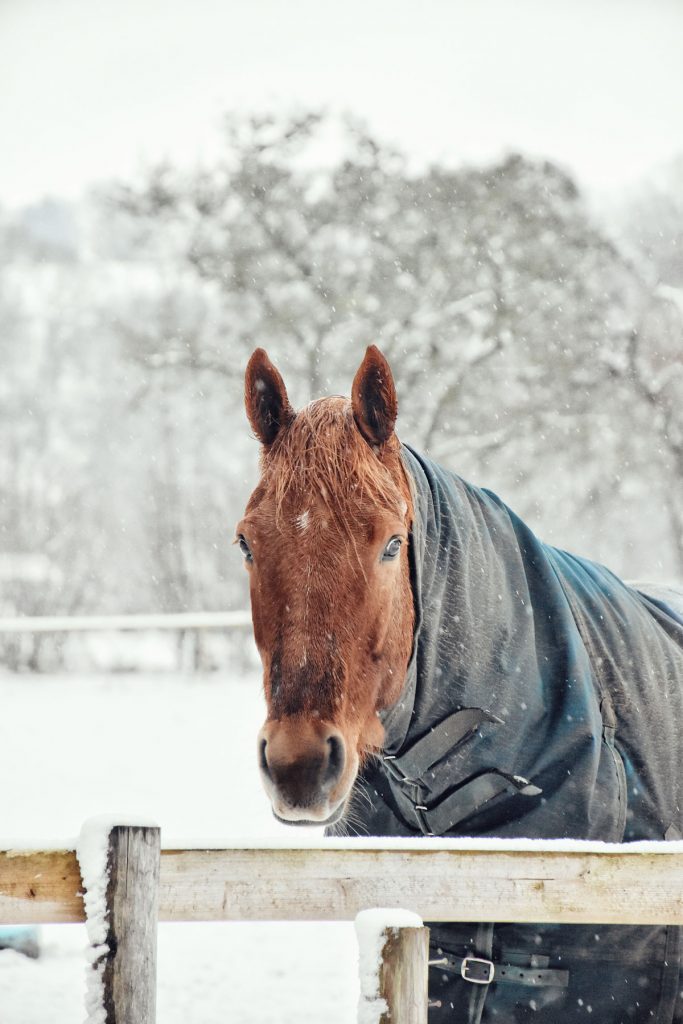
Breed and Type
While there are exceptions to every breed, many naturally have thicker or thinner coats. It’s commonly known that Thoroughbreds struggle to grow fur and hold onto their body weight. These thin-skinned horses may need extra attention compared to a heavier breed. Many ponies like Haflingers manage just fine on their own. They develop thick coats and keep weight easily.
General Condition
In addition to breed, consider the horse’s overall body condition. Senior horses, for example, may struggle to maintain muscle and a winter coat. It can take them longer to warm up in cold weather. Furthermore, some horses are just hard-keepers. They may be battling health or dental issues. These sensitive horses can benefit from the extra warmth and protection of a blanket or sheet.
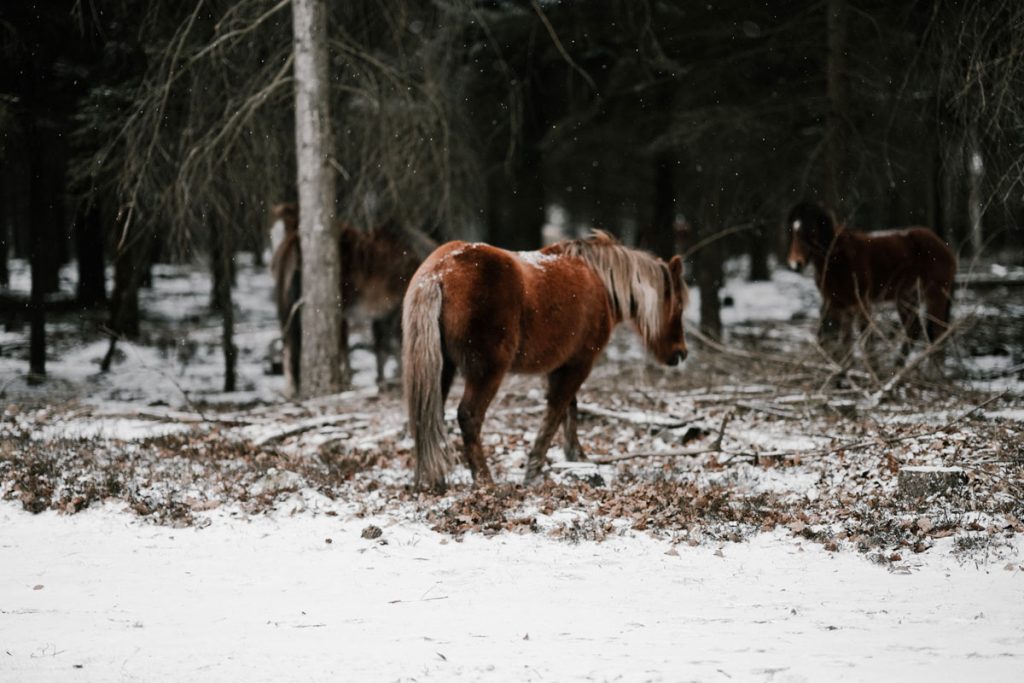
The Weather
Sometimes, Mother Nature has her own ideas! Even a healthy, unclipped horse may struggle with extreme wind, freezing rain, and unrelenting snow. Horse owners must check the forecast and weather channel regularly! Make sure to look at the wind-chill factor and what the ‘feels like’ temperature is. Freezing rain will flatten your horse’s coat. It may be a good idea to blanket or leave them inside.
Does your horse facility have a run-in shed or shelter of some sort? This can change things greatly! On windy, rainy, or snowy days, your horse should have the opportunity to escape the elements in a covered shelter.
If you decide to blanket your horse, make sure to consider the extra work involved. You must adjust the sheet and blanket layers depending on the weather and how your horse is handling it. Wet blankets must be changed, so backups are necessary! Furthermore, your horse will need their blanket removed and to be brushed on a regular basis.
Whatever you do, don’t assume your horse is cold because you are. Let your horse’s winter fur do their job. Likely, your horse will be nice and toasty. Keep an eye on them and provide lots of forage. Good luck this winter!
**
Emily Fought discovered her passion for horses early on in life. When she isn’t writing about them, you can find her in the barn riding. Although Emily’s background is in dressage, she enjoys cross-training and is an avid trail rider. She resides in Northwestern Pennsylvania with her husband and small dog. Together, they own and operate Humblewood Farm.

